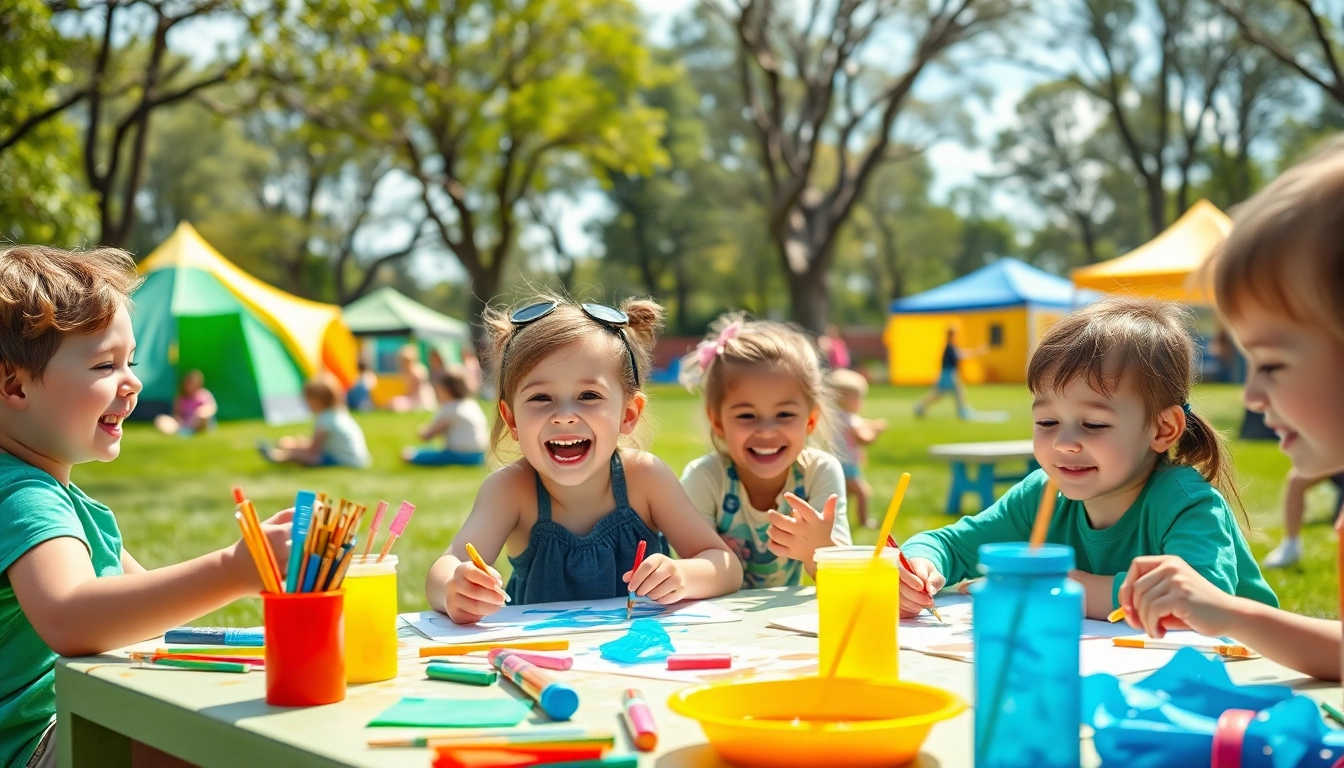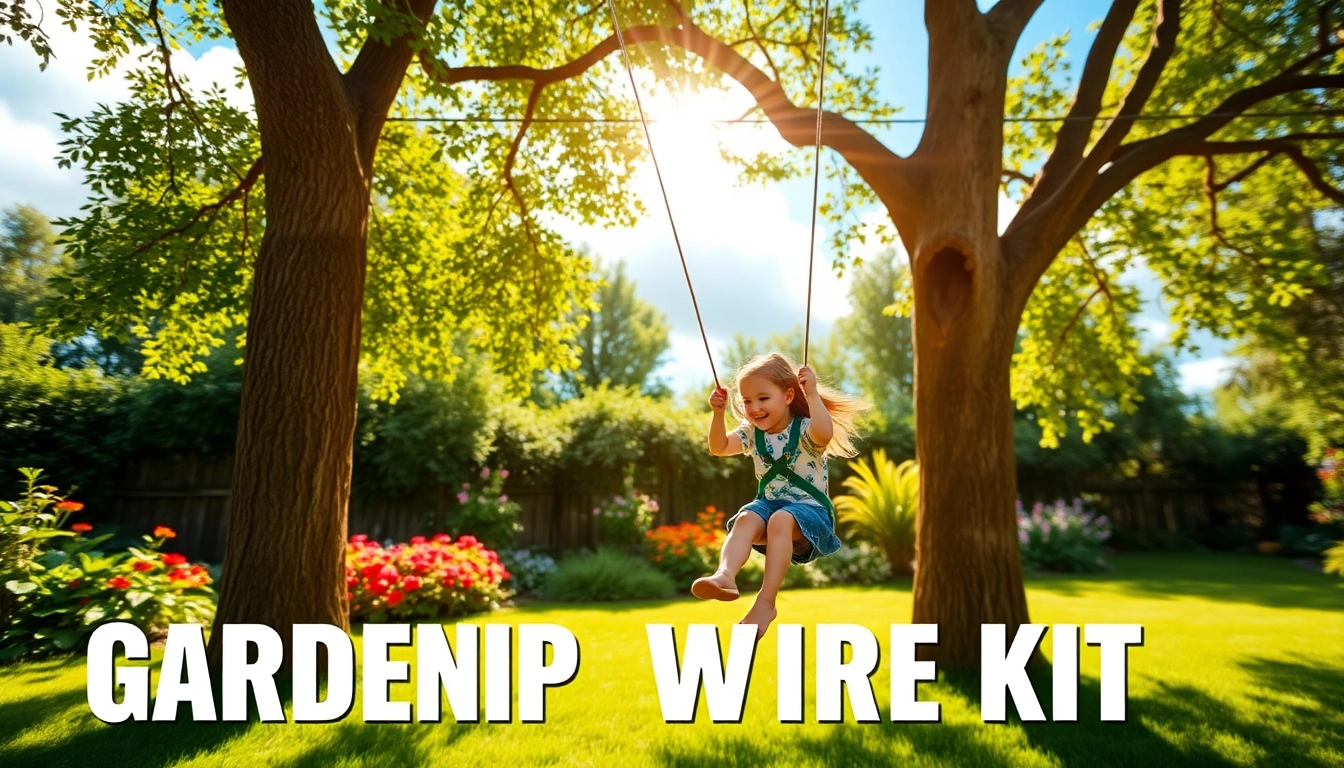Understanding Holiday Camps
What Are Holiday Camps?
Holiday camps are specialized programs designed to provide children with a range of recreational activities during school holidays. These camps can vary widely in their offerings, catering to different age groups and interests. They often include a combination of structured activities and free play, promoting both skill development and social interaction.
Typically, holiday camps operate on days when school is not in session, such as during summer breaks, winter holidays, or even short breaks throughout the school year. They offer a safe environment where children can explore new interests, engage in physical activities, and form friendships outside their regular school setting.
Benefits of Attending Holiday Camps
Enrolling children in holiday camps can have numerous benefits:
- Social Skills Development: Camps provide an excellent platform for children to meet peers, build friendships, and learn essential social skills such as communication, teamwork, and conflict resolution.
- Skill Acquisition: Many holiday camps focus on specific interests such as arts, sports, or science, enabling campers to acquire new skills and knowledge they may not learn in a traditional classroom setting.
- Boosting Confidence: Stepping out of their comfort zone to try new activities enhances self-esteem and builds resilience among children.
- Physical Health: With many outdoor activities, holiday camps promote physical fitness, encouraging children to be active rather than sedentary.
- Structured Learning Environment: Each camp offers a well-organized schedule, keeping children engaged and honing their ability to follow routines and instructions.
- Creative Expression: Various programs allow for arts and crafts, drama, and music, giving children a chance to express themselves creatively.
Types of Holiday Camps Available
There is a diverse array of holiday camps available, catering to a variety of interests and age groups. Some of the notable types include:
- Sports Camps: Focused on physical activities, these camps help children develop sportsmanship and hone their athletic skills through structured sports training.
- Arts Camps: Aimed at budding artists, these camps offer programs centered around visual arts, dance, theater, and music, allowing creative expression to flourish.
- Education Camps: Combining fun with learning, many camps offer workshops focusing on science, technology, engineering, and mathematics (STEM), often incorporating hands-on projects.
- Adventure Camps: Typically featuring outdoor activities such as hiking, canoeing, or rock climbing, these camps foster a connection with nature and promote environmental awareness.
- Day Camps: Operating during the day, these camps provide a flexible option for working parents and usually involve less commitment than overnight camps.
- Specialized Camps: Some camps cater to specific interests, such as coding, language immersion, or culinary arts, catering to niche markets.
Choosing the Right Holiday Camps
Factors to Consider When Selecting Holiday Camps
Choosing the right holiday camp for your child involves careful consideration of several factors:
- Interests and Passions: Think about what your child enjoys. Selecting a camp that aligns with their interests—such as sports, arts, or technology—will enhance their overall experience.
- Age Appropriateness: Ensure that the camp activities are suitable for your child’s age group to guarantee enjoyment and safety.
- Location: Consider a camp that is convenient to either home or work. Proximity can reduce travel stress and ease drop-off and pick-up arrangements.
- Reputation: Research the camp’s reputation through online reviews, word-of-mouth recommendations, and by reaching out to previous campers’ families.
- Staff Qualifications: Look for camps with certified instructors and trained staff. Their expertise can greatly enhance the experience your child receives.
- Cost: Analyze your budget, keeping in mind that some camps may offer scholarships or financial aid to assist families.
Understanding Age-Appropriate Activities
When selecting a holiday camp, it’s crucial to understand the types of activities that are deemed age-appropriate:
- For Younger Children (Ages 5-8): Activities should be simple and focus on play-based learning, such as arts and crafts, basic sports, and group games that encourage teamwork.
- For Middle-Aged Children (Ages 9-12): These campers can handle more complex tasks and activities that challenge them intellectually and physically, including science experiments, competitive sports, and creative arts.
- For Teens (Ages 13 and up): Teens often benefit from camps that emphasize leadership development, life skills, and independence, such as adventure camps, internships, or specialized skill workshops.
Evaluating Camp Locations and Facilities
The physical environment of the camp plays a significant role in your child’s experience:
- Safety Standards: Ensure the facilities meet safety standards, with proper maintenance and safety measures in place.
- Available Amenities: Look for camps that offer a variety of facilities, such as sports fields, art studios, laboratories, and safe outdoor spaces.
- Accessibility: Consider how easily accessible the location is for parents and campers, featuring adequate parking and transportation options.
- Environment: A supportive and welcoming environment can enhance your child’s enjoyment; visit the camp if possible to assess the atmosphere.
Popular Activities in Holiday Camps
Arts and Crafts Programs
Arts and crafts are staples in many holiday camps, offering campers the opportunity to engage their creative sides. These programs often include:
- Painting and Drawing: Providing various materials to explore different techniques and styles.
- Craft Projects: Working with recycled materials, fabric, and other supplies to create unique items, fostering creativity and resourcefulness.
- Performing Arts: Drama, music, and dance activities are often included, allowing children to express themselves and gain confidence in performance.
Sports and Outdoor Games
Physical activity is a significant component of holiday camps, promoting health, teamwork, and social interaction.
- Team Sports: Common activities include soccer, basketball, and volleyball, helping campers develop physical skills and collaborative spirit.
- Outdoor Adventures: Activities such as hiking, canoeing, and obstacle courses foster connections with nature while providing physical challenges.
- Individual Sports: Opportunities for personal competition can include swimming, martial arts, and tennis, allowing children to build self-discipline.
Science and Educational Workshops
Many camps incorporate learning into their activities, particularly in areas related to science, technology, engineering, and mathematics (STEM).
- Hands-On Experiments: Conducting experiments teaches children about scientific methods while making learning engaging and fun.
- Technology Workshops: Coding, robotics, and video game design workshops provide exposure to modern technologies and help develop critical skills.
- Environmental Education: Camps might include projects focusing on conservation and ecology, fostering a sense of responsibility towards the environment.
Safety and Health Measures in Holiday Camps
Health Protocols for Campers
The health and safety of campers are paramount, requiring camps to implement strict health protocols:
- Health Screenings: Screening campers for illnesses before attending can prevent the spread of contagions.
- Emergency Procedures: Camps should have clearly defined protocols for emergencies, including medical incidents and adverse weather conditions.
- Hygiene Practices: Regular hand-washing and sanitizing stations should be available to promote health amongst campers.
Safety Training for Camp Staff
Camp staff play a critical role in ensuring safety. Necessary training includes:
- First Aid Certification: All staff members should be trained in CPR and basic first aid to address any medical emergencies effectively.
- Child Protection Training: Safety training regarding child safety, abuse prevention, and emergency response protocols should be mandatory.
- Outdoor and Sports Safety: Staff supervising physical activities must be trained in risk management and safety procedures specific to those activities.
Emergency Preparedness Plans
A comprehensive emergency preparedness plan should be in place:
- Fire Drills: Regular fire drills help familiarize campers and staff with evacuation routes and procedures.
- Communication Protocols: Clear lines of communication are vital during emergencies. Camp staff should know how to effectively communicate with parents and authorities.
- Evacuation Plans: Camps should have designated assembly points and safety protocols in case of evacuations.
Making the Most of Holiday Camps Experience
Preparing Your Child for Holiday Camps
Preparation can enhance your child’s experience at holiday camps:
- Discuss Expectations: Talk with your child about what they can expect at camp, including the activities they will engage in and the new friends they will meet.
- Pack Together: Involve your child in packing their gear, helping them feel invested in their camp experience and ensuring they have everything they need.
- Address Anxieties: If your child has concerns about attending camp, discuss these openly, reassuring them about the positives of the experience.
Encouraging Friendships and Teamwork
Encouraging your child to build friendships can be crucial:
- Group Activities: Encourage your child to participate fully in group activities as these are designed to help children bond and work together.
- Communication Skills: Teach your child the value of expressing themselves and listening to others, fostering open lines of communication with their peers.
- Support Fun: Remind your child that camp is about fun, helping to ease any competitive pressures they might feel.
Reflecting on Camp Experiences
Post-camp reflection is essential for maximizing the benefits of the experience:
- Discussions: Encourage your child to share their experiences, what they’ve learned, and the friendships they’ve formed, reinforcing positive memories.
- Journaling: Keeping a camp journal can help children process their feelings and memories, serving as a tangible reminder of their adventures.
- Identifying Skills: Help your child recognize and discuss any new skills or interests they may have developed, encouraging their continued exploration in those areas.


